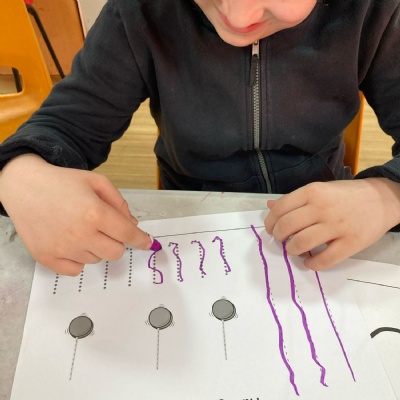"They Said He Was Just Having a Bad Day..." – The Truth About Illegal Exclusions

If you’ve ever been asked to collect your child early because they’re “not coping,” told to keep them home on exam days, or advised they shouldn’t come in when Ofsted is visiting — you are not alone.
It might feel like the school is trying to help, but this could be an illegal exclusion.
What is an Illegal (or Informal) Exclusion?
An illegal exclusion is when a child is sent home or told not to attend school without the school going through the proper legal process.
You might hear phrases like:
- “Let’s just give them a break today”
- “They can’t come in while we’re waiting for more support”
- “You’re better off keeping them at home for the exams”
- “Can you collect them? They're having a bad day”
- “Lets try just an hour today to not overwhelm them.”
If your child is being sent home you need to have this in writing - if this isn’t written down as an official exclusion then it is not legal and that’s not okay.
Why Does This Matter?
Every child — including those with disabilities — has the right to an education. No exceptions.
Informal exclusions mean:
- Your child is missing out on learning
- They’re being treated unfairly
- You’re being left without any way to challenge what’s happening
It’s also really isolating — for you and your child. Especially if you’re being made to feel like they’re the “problem.”
What Are the Warning Signs?
Watch out for:
- Being told to collect your child because they’re “not coping”
- Being asked to keep them off on Ofsted days, exam days, or when “staffing is stretched”
- A part-time timetable offered without a written agreement or plan
- Being told a managed move is the only option
- Being encouraged to move schools, de-register, or home educate your child “for their own good”
These are often signs that the school is avoiding its responsibilities rather than supporting your child properly. It may be that you agree with what the school is trying to do but it is still important to get everything in writing – this gives you and your family additional rights to challenge the decision but also means that there is a set timescale to work towards.
What Should Happen Instead?
If your child’s school wants to exclude your child, they must do it officially. This means:
- You are provided with a formal letter explaining why
- You have in writing how long the exclusion is for
- That you know your rights on how to appeal the decision
The only reason that the school can ask you to collect them “for today” is if your child is sick.
It might be that they suggest a reduced timetable – if you are happy with this decision then it needs to be agreed in writing, be for a specific length of time with a clear plan to return to full time education.
What Can I Say to the School?
It’s okay to ask questions. Try saying:
- “Can you confirm that in writing?”
- “Is this being logged as a formal exclusion?”
- “What support is being put in place so this doesn’t keep happening?”
- “Can we talk about reasonable adjustments before discussing exclusion?”
These aren’t confrontational — they just help you make sure everything is clear and on record.
Your Rights in Simple Terms
- Schools must formally record exclusions and explain why
- Reduced timetables are only legal with your written agreement
- Schools must follow the Equality Act 2010 — they can't exclude your child because of their disability
- You have the right to challenge if you think your child is being unfairly treated
Template Letter You Can Use
If you’re feeling unsure, here is the text for a short letter you can adapt and send to your child’s school:
Subject: Concern About Informal Exclusion
Dear [Teacher’s/Headteacher’s name],
I’m writing to express concern that my child, [Child’s Name], has been asked to stay home / leave school early / not attend on certain days (please delete as appropriate), without a formal exclusion letter.
As I understand it, this may be classed as an informal exclusion, which isn’t allowed under current Department for Education guidance.
I would appreciate written clarification on whether this was recorded as an exclusion, and what support is being put in place to help [Child’s Name] stay in school.
We are keen to work together to find the right support, but we also want to make sure that any actions taken are in line with statutory guidance and our child’s legal right to an education.
Thank you for your understanding.
Kind regards,
[Your Name]
You Are Not Alone — We Are Here for You
If this sounds familiar, you’re not alone — and you don’t have to deal with this on your own.
You are not being difficult. You’re standing up for your child — and we’re right here beside you.
